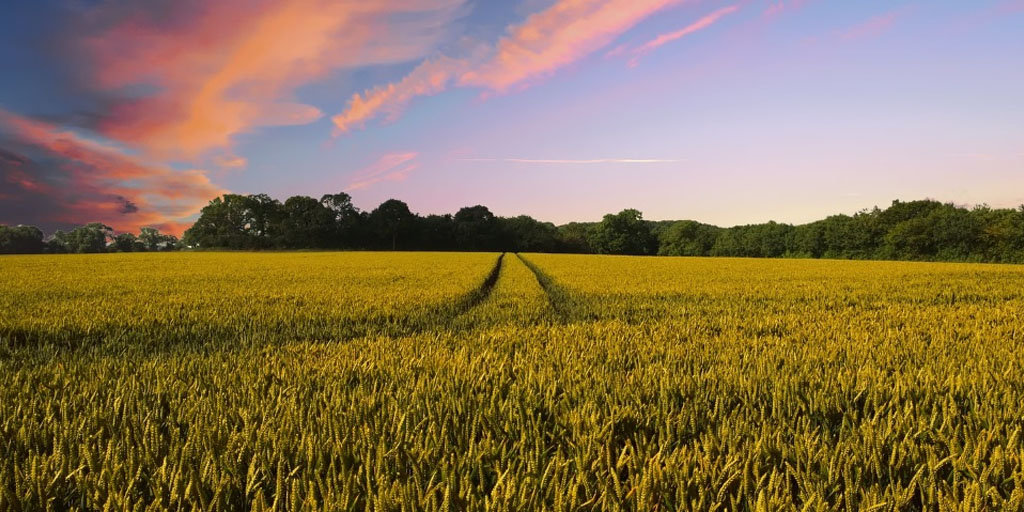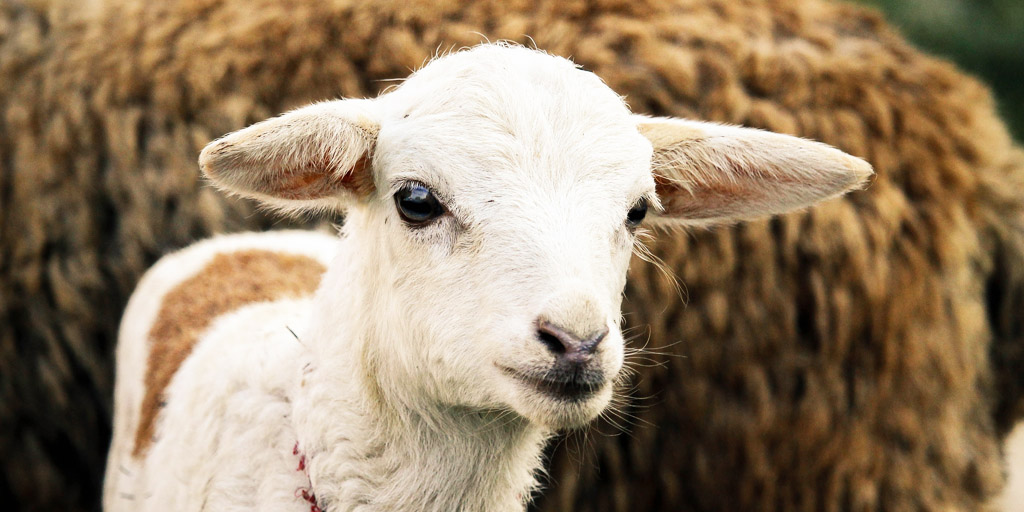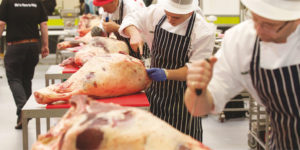Farming careers / job profile
Farming is an ancient industry that combines modern technology and fresh new ways of thinking to feed billions while protecting the land.
Getting into farming careers
Do you think about where your milk, cheese and bread come from? Farming is an old industry but also a technologically advanced one in order to make sure everyone can be fed. There are many different types of farming in the UK so there is plenty of career potential.
You would probably start off as a farm worker, perhaps doing seasonal work in the summer holidays. This would give you a taste of what’s involved to see if you like outdoors work and working with animals and/or the land. From there, you could progress in your career to management level.
What types of farming are there?
- Fish farmer (farming fish and shellfish in sea and freshwater enclosures to keep the fish and chips tradition going).
- Dairy farmer (working with animals who produce milk so that it can be turned into things like yoghurt, ice-cream and cheese. And, of course, milk).
- Arable farmer (growing crops like wheat and barley to turn into bread, cereal, cake and more)
- Poultry farmer (farming chickens and eggs).
- Organic farmer (farming produce that is more expensive to buy because the land and animals have been cared for in an ethical way, and without using potentially harmful processes like pesticides).
How Much Money Can You Earn As A Farmer?
These LMI Job Trends give you a sneak peek of how much you could earn starting out for this career, and how much your salary could grow with experience.
Salary guide for farming jobs
Recent labour market information says you can earn on average between £20,000 and £50,000 a year as a farmer in the UK.
Starting wages as a farm worker can vary, because the work can be seasonal (for example, a farm might need extra workers during planting or harvest time). As it’s a role suitable for your first step into farming, you could expect to earn £15,000-£20,000 a year as a farm worker over the age of nineteen.
Your starting salary can vary because of factors like level of experience, training, location or the size of the company. Your salary as a farmer will increase over time as you build skills, knowledge and experience.
Green Careers and Animal / Environmental Careers FAQs
Is there something you’d like to know about animal and environmental careers? Maybe we can help!
- DID YOU KNOW? You can get into these careers with T Levels!
- 5 tips on getting environmental jobs
- Green careers with the Environment Agency
- What are the UK’s best-paid environmental jobs?
- 5 reasons to explore ABP food industry careers
- You can get health & safety apprenticeships that help you study for a FREE degree!
- Nature volunteering can help your confidence and CV
Skills You Need To Become a Farmer
Useful Skills To Put On Your CV:
- Physical ability to carry out tasks involving bending, lifting and carrying
- Practical skills – being good with your hands and willing to muck in and operate machinery
- Self-belief skills including motivation and enthusiasm for the work
- Reliability and flexibility to work shifts including weekends, early mornings or evenings
- Ability to drive
As you progress to become a farmer, the following skills will be useful:
- Management skills – good interpersonal skills for organising staff and a good head for business
- Initiative in finding new ways to help the farm make a profit
- Money and budgeting skills
How Do You Get These Skills?
Vocational qualifications and work experience will help you build these skills over time.
Top Skills-Boosting Tip
Your teamwork skills will help you learn by doing as you work and learn with others who have more experience and can show you the ropes.
What Qualifications & Training Do You Need For Farming Careers?
School, college and training
Some people get into this job by going into the family business, because their parents were farmers and they started off by helping out on the farm. That’s not the only route in. In fact, there is currently a demand for farm workers who are motivated and have both practical skills and technical knowledge.
You can start out by building work experience in the farming industry for a few years, as a farm worker or seasonal assistant on a farm. There are no set qualifications to start out, but farming qualifications exist to help you build your knowledge.
While at school, aim for at least four GCSEs or their equivalent with passing grades along the lines of 9-4 (A*-C) in subjects like maths and at least one science. They’re not a requirement but they will help you apply for useful qualifications further down the line, especially if you want to go into farming management.
Farming Vocational Qualifications
Farmers can have qualifications like an HDN or HNC. In an agricultural college, you can study towards Level 1/2/3 Awards, Certificates and Diplomas in work-based agriculture.
Farming BTECs
You can do BTECs that lead to being qualified with a BTEC First Certificate and Diploma in agriculture.
Farming T-Levels
T-Levels are a choice for learners after GCSEs alongside apprenticeships and A-levels. During a 2-year programme, you can learn the main knowledge and skills needed for entry to a range of animal care and management careers.
Farming Apprenticeships
You can seek out farming apprenticeships with organisations like Find an Apprenticeship. You’ll get an industry-recognised qualification while you’re learning on the job. An apprenticeship is a way to build skills, knowledge, and experience – while getting paid for it.
Intermediate, advanced and higher level apprenticeships can help you earn while you learn to become a:
- Farm worker
- Livestock technician
- Hatchery staff member (and then supervisor)
- Agriculture machinery operator
- Assistant farm manager and unit manager (and then manager)
As you can see, doing an agricultural apprenticeship can take you all the way up to managerial level. If you’re responsible, passionate about the idea of working with the land, and ready to learn there are all kinds of opportunities open to you. There are currently around 150,000 UK agriculture business employing well over half a million people, so there is work out there to grow a career that bears fruit.
And, yes, you will 100% learn how to drive a tractor.
University degrees and graduates
You can do foundation degrees and degrees in:
- Agriculture
- Farm business management
Career Progression
As a farm worker you could move on to become a supervisor, dairy or arable unit manager, or assistant manager on a large farm. You may need to move from one farm to another to gain experience.
You could also become a top-level manager or an agricultural contractor. In this role you would supply your services to more than one farming, looking after machinery or working with agricultural supplies and equipment.
What Work Experience Do You Need For Farming Jobs?
Work Experience Tips
To become a farmer it will help you to have previous work experience on a farm. Aim to get farming work experience to build your CV as early as you can. This can involve:
- Seasonal work on a farm as a farm worker, fruit picker or stock person
- Farming placements (this is best done on a rural farm not a city farm, as they have very different ways of doing things – and city farms are usually much smaller than rural farms too!)
- If you live in the countryside or somewhere near, find your local Young Farmer’s Club to network for opportunities.
Volunteering Tips
Want to travel and learn about agriculture at the same time? You could become a WWOOFer. WWOOF stands for World Wide Opportunities on Organic Farms! Visit wwooof.net to see if you could turn your summer holidays into a real learning experience as you help out with an organic farm somewhere in the world while getting free room and board. It’s a very sociable way to meet people and have fun volunteering – while working hard and picking up useful agricultural skills.
Look for volunteering opportunities that involve agricultural work – like caring for animals or growing produce.
Volunteering tipsWhat Does A Farmer Do?
Knowing a little more about farming will help you show employers that you understand what this job is about. It can also help you decide if it’s right for you.
The listed activities depend on what kind of farm work you are doing. For example, if you are working on a fish farm you won’t have to milk cows or shear sheep!
DID YOU KNOW? You may be expected to be able to drive, as you may need to use vehicles like tractors or trucks to move produce and livestock to where it’s needed. Also, farms tend to be in rural areas. Being able to drive will help you get around during your free time not just in working hours.
Example daily job responsibilities
- Looking after vehicles and machinery, and driving them to transport goods or work the fields as needed.
- Cleaning, maintaining and repairing buildings so that produce is stored hygienically and animals live in clean and comfortable surroundings.
- Building and repairing walls and fences, and maintaining the hedges that separate the fields.
- Ploughing the fields and seeding them with tractors, adding fertiliser and crop spray as needed (if you’re on an arable farm).
- Handling livestock and getting their feed ready every day, while making sure their feeding and watering equipment is clean.
- Milking cows, shearing sheep, and maybe even helping out when cows and ewes go into labour.
- Keeping an eye on the welfare of animals, checking for signs of illness or discomfort as well as keeping records of any medication they are given.
How To Find Farming Jobs: Next Steps
To find jobs for young people in this role, search on jobs boards for early career roles with these words in the title:
- Agricultural apprenticeships
- Farm worker jobs
- Farm technician jobs
- Agricultural BTECs
- Agricultural A-levels
- Agricultural graduate schemes
These websites might be able to help you find farming experience or a farming role that’s a good fit for you:
- Find an Apprenticeship
- Lantra has information on agricultural careers and courses
- Young Farmer’s Club
You can also take a look at our database of local opportunities to see if there are any relevant jobs, work placements, or careers events and workshops to help you get started.
Get Into Land, Animal & Environment Careers With Youth-Friendly Employers
These employers and organisations are here to help. They care about your potential and desire to learn, not just your qualifications and experience. They may be able to offer traineeships, apprenticeships, graduate schemes, first jobs, careers advice, wellbeing support and much more.
Agriculture, Animal & Environment Career Tips & Opportunities
Have You Thought About These Agriculture, Animal & Environment Careers?
View job descriptions with average UK salary, useful qualifications and a wide range of routes into each career.
-
Archaeologist Careers
-
Bin Collector / Refuse Collector Jobs & Careers
-
ABP Apprenticeships, Graduate Schemes and Early Careers
-
Graduate Schemes with ABP
-
Apprenticeships with Youth Friendly Employer ABP
-
QESH (Quality, Environment, Safety & Health) Degree Apprenticeship with Coca-Cola Europacific Partners
See All Our Youth-Friendly Employers






































































YES! I Want More Free Careers Help...
So what are you waiting for? Grab your future.







































